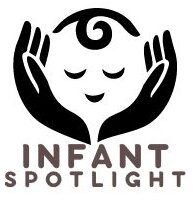Are you a new parent wondering when to start brushing your baby’s teeth and what toothpaste to use? Taking care of your baby’s oral health is important right from the start, and knowing the appropriate time to begin brushing can make a big difference. In this article, we will provide you with helpful insights and recommendations on when and how to start brushing your baby’s teeth, as well as what toothpaste is safe and suitable for their delicate mouths. So rest assured, we’ve got you covered on all things baby oral care!
When to start brushing
6 months
It is recommended to start brushing your baby’s teeth as soon as their first tooth erupts, which typically happens around the age of 6 months. Even though baby teeth are temporary, it is crucial to maintain good oral hygiene from an early age to promote a healthy mouth and pave the way for proper dental care in the future.
First tooth eruption
The eruption of the first tooth is an exciting milestone for both parents and babies. Once that adorable little tooth makes its appearance, it’s time to grab a toothbrush and introduce your little one to the importance of dental care.
Types of toothbrushes
Soft-bristled brush
When it comes to choosing a toothbrush for your baby, a soft-bristled brush is the way to go. Soft bristles are gentle on the delicate gums and teeth of infants, reducing the risk of irritation or discomfort. Look for toothbrushes with bristles specifically designed for babies, ensuring a safe and effective brushing experience.
Small head
Opt for a toothbrush with a small head. This is important because it allows you to navigate around your baby’s tiny mouth comfortably. A small head gives you better control and precision while brushing, reaching all those hard-to-reach areas and ensuring a thorough clean.
Handle design
Consider the handle design of the toothbrush as well. Look for a toothbrush with a handle that is easy to hold and maneuver. Some toothbrushes come with an ergonomic design, making it more comfortable for both you and your baby to handle. The handle should also have a secure grip to avoid any accidental slips during brushing.

Choosing the right toothpaste
Age-appropriate toothpaste
When it comes to toothpaste, it is vital to choose an age-appropriate one for your baby. For children under the age of 2, avoid using toothpaste containing fluoride unless specifically recommended by your dentist. Instead, use a smear of toothpaste about the size of a grain of rice. For children aged 2 and above, a pea-sized amount of fluoride toothpaste can be used.
Fluoride content
Fluoride is an essential mineral that helps strengthen tooth enamel and prevent tooth decay. Look for toothpaste that contains an appropriate amount of fluoride for your child’s age. Fluoride plays a significant role in maintaining good oral health, but excessive consumption can lead to fluorosis, a condition that affects the appearance of tooth enamel. Therefore, it’s important to follow the recommended guidelines on fluoride content for different age groups.
Flavor
Toothpaste comes in various flavors to make brushing more enjoyable for your little one. When choosing toothpaste for your baby, consider opting for a mild, child-friendly flavor. This will make the brushing experience more pleasant and increase your baby’s willingness to participate in the daily dental care routine.
How to brush a baby’s teeth
Frequency
Ideally, you should brush your baby’s teeth twice a day – once in the morning and once before bedtime. Establishing a routine from an early age helps instill good dental habits and ensures proper oral hygiene. However, if your baby falls asleep while nursing or drinking from a bottle, it’s crucial to wipe their gums and teeth gently with a clean, damp cloth to remove any residual milk or formula.
Proper technique
To brush your baby’s teeth effectively, position yourself behind them with their head resting against your chest. Gently tilt their head back and use a soft-bristled toothbrush to clean their teeth using small circular motions. Be sure to brush both the front and back surfaces of their teeth, as well as their tongue. Remember to apply gentle pressure to avoid causing discomfort or injuring their gums.
Assistance
As your baby grows, they may want to try brushing their teeth on their own. While encouraging their independence is important, it is essential to supervise and assist them until they have developed the coordination and dexterity to brush effectively. Allow your child to hold the toothbrush while guiding them and ensuring they cover all the necessary areas. This will help them develop good brushing habits and ensure a thorough clean.
Establishing a dental care routine
Leading by example
As a parent, you play a significant role in shaping your child’s behavior. To establish a dental care routine, lead by example. Let your child witness your own brushing habits and make it a fun and interactive experience. Brush your teeth together, showing them the correct technique and emphasizing the importance of good oral hygiene. This will not only make brushing more enjoyable but also encourage your child to imitate your actions.
Consistency
Consistency is key when it comes to establishing a dental care routine. Make brushing a non-negotiable part of their daily routine, just like eating meals or taking a bath. Set specific times for brushing, such as after breakfast and before bedtime, and stick to it. By making brushing a habit, it becomes ingrained in your child’s routine, making it easier for them to prioritize their oral health as they grow older.
Positive reinforcement
Positive reinforcement goes a long way in encouraging good dental habits. Praise your child for their efforts during brushing, highlighting their progress and improvements. Consider using a rewards system, such as a sticker chart, where your child can earn stickers for each successful brushing session. Celebrate milestones and achievements, reinforcing the idea that taking care of their teeth is an important and worthwhile endeavor.
Common concerns and considerations
Thumb sucking
Thumb sucking is a common habit among babies and toddlers, providing them with comfort and security. However, prolonged thumb sucking can lead to dental problems, such as misalignment of the teeth or an overbite. If your child excessively sucks their thumb, consult with your pediatric dentist for guidance on strategies to gradually wean them off this habit, reducing the potential impact on their dental health.
Teething
Teething can be a challenging time for both babies and parents. The discomfort and irritability associated with teething can make brushing a challenging task. However, it is imperative to maintain consistent oral hygiene even during this phase. Use a soft, chilled teething ring or a clean damp cloth to gently massage your baby’s gums before brushing. This can help alleviate some of the discomfort and make the brushing experience more tolerable for your little one.
Dental check-ups
Regular dental check-ups are essential for monitoring your baby’s oral health and addressing any concerns at an early stage. Schedule your baby’s first dental visit around their first birthday or six months after their first tooth erupts. These visits allow the dentist to assess the development of your baby’s teeth and gums, provide guidance on oral hygiene practices, and detect any potential issues that may require intervention.
By following these guidelines and maintaining a consistent oral care routine, you are setting your baby on the path to a lifetime of good oral health. Remember, starting early and being proactive in caring for your baby’s teeth will contribute to their overall well-being and ensure a positive dental experience as they continue to grow.
